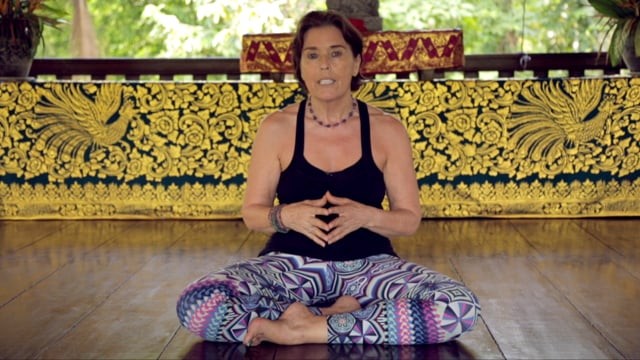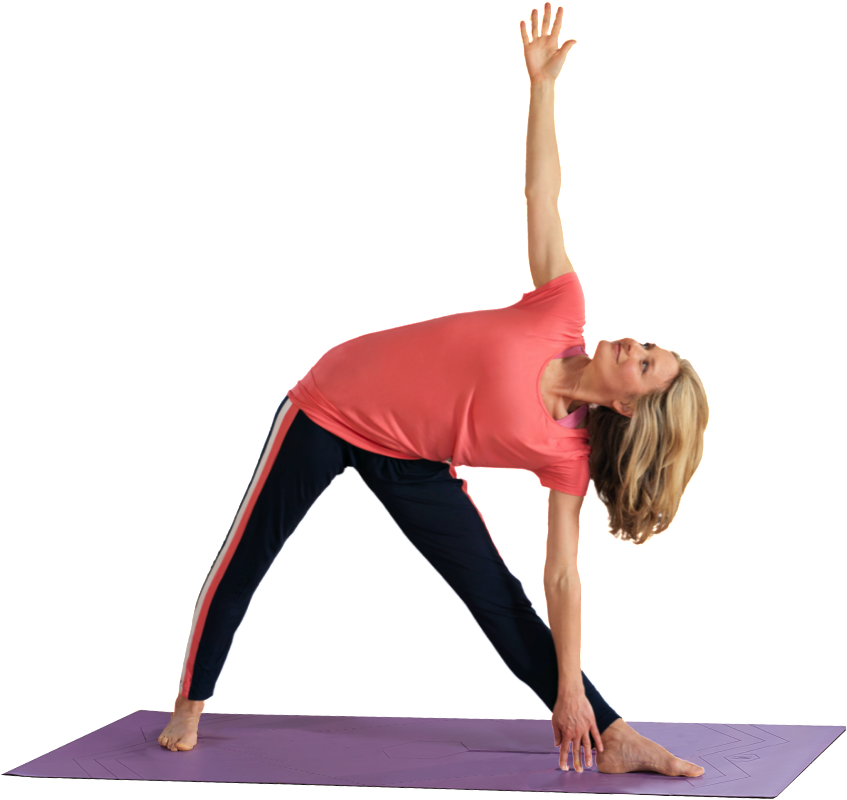10 to 20 mins › Vidya Heisel
-
 15:51
15:51Peacock Pose Tutorial
This tutorial for peacock pose (mayurasana) starts with a short sequence to warm up the body. Mayurasana is an arm balance, so this tutorial is the perfect way to build strength and confidence to reach the peak pose over time if you need. You will need two blocks and a blanket.
-
 14:48
14:48The Eighth Limb: Samadhi
In this yoga philosophy class, we explore the concept of Samadhi. Samadhi is the eighth and final limb of Patanjali's eight limbs of yoga, and it means enlightenment. This can be quite a challenging concept for us to grasp, but it is often thought of as freedom from the limited sense of self.
-
 16:17
16:17The Seventh Limb: Dhyana
The seventh limb of yoga is Dhyana, or meditation. The eight limbs of yoga represent the path of meditation, which is considered to be the greatest tool in our yoga practice to help us experience Samadhi by understanding and mastering the mind to experience equanimity and balance.
-
 10:33
10:33The Fifth Limb: Pratyahara
The fifth limb of yoga is Pratyahara which means withdrawal of the senses or turning inwards. This refers to the first step of meditation after laying the groundwork with the practices in the previous limbs. Withdraw from external stimulus by turning off your phone or retreating to a quiet room for a time and take your attention inwards.
-
 14:48
14:48The Fourth Limb: Pranayama
The fourth limb of Patanjali's path is Pranayama which means life force energy. It is thought that the more of this life force energy we can cultivate, the more healthy, awake, alive and aware we will be, and the greater our longevity. Learn about some of the different types of breath work used to practice pranayama.
-
 17:53
17:53The Third Limb: Asana
Patanjali's third limb of yoga is Asana, or the physical practice of yoga. Despite there being very little mention of yoga postures in the Sutras, asana traditional refers to the practicing of sitting for meditation, which then evolved to encompass the yoga poses we know today.
-
 14:16
14:16The Fifth Niyama: Isvara Pranidhana
The fifth and final Niyama is Isvara Pranidhana, or surrender to the absolute. This Niyama is all about how we respond to occurances beyond our control; are we a victim living in fear or can we see and embrace the beauty in the unknown?
-
 15:42
15:42The Third Niyama: Tapas
The third Niyama is Tapas, which means self-discipline. It also translates as 'burning' which can be looked at in a few different ways, including a burning passion for leading a spiritual yogic life.
-
 17:30
17:30The First Niyama: Saucha
The Niyamas are observances, the first of which is Saucha, which means purity. Both of cleanliness of the body and the space of around us, and purity of thoughts, intentions and behaviour.
-
 11:59
11:59The second Yama: Satya
The second Yama is Satya, or truth. In this talk, Vidya explores this yama and how we can interpret it as a means to be vulnerable, be our true selves and see the world subjectively.
-
 15:32
15:32The First Yama: Ahimsa
The first limb is Yama, and this limb is divided into five restraints. The first of which is Ahimsa, or non-violence. Vidya talks through what non-violence means and how it is practiced.
-
 14:40
14:40Introduction to Patanjali's Eight Limbs of Yoga
In this philosophy talk series, Vidya will explore Patanjali's eight limbs of yoga. The goal of this eight-step path is to reach enlightenment. Watch this introductory video first to get an overview of the eight limbs, including the history, context and meaning, and how they can relate to our life today.
Join the Wellbeing Revolution
This is your yoga, your way.
Build a happier, healthier, more sustainable life.
